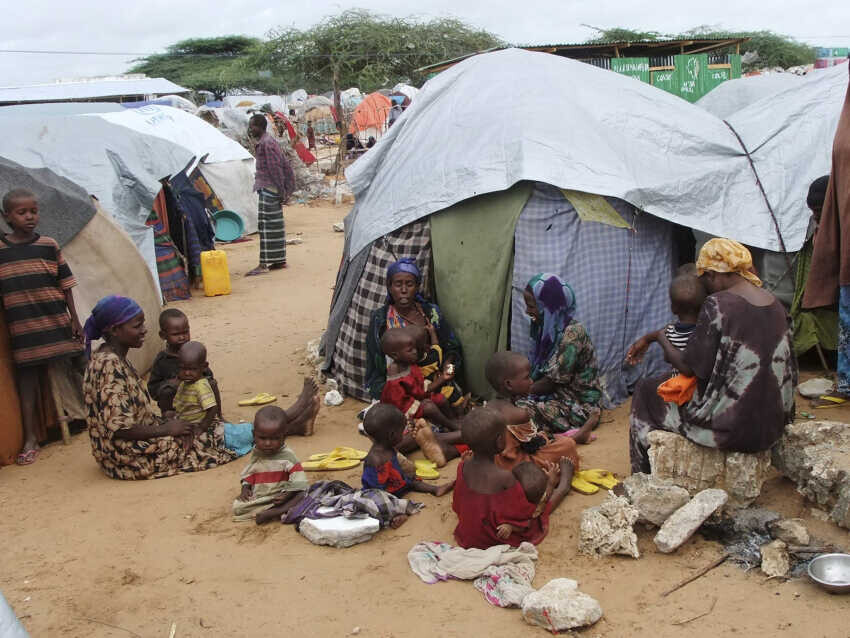
In the Dowa District of Malawi, approximately 41 kilometers north of the capital Lilongwe, lies the sprawling Dzaleka Refugee Camp. This settlement is home to over 52,000 refugees and asylum seekers, primarily from the Democratic Republic of Congo (62%), Burundi (19%), and Rwanda (7%), individuals who have fled massacres and civil strife in their homelands.
On April 23rd (local time), a beacon of hope emerged within the camp as a temporary dental clinic opened its doors. Word of free dental care spread quickly, drawing a steady stream of residents to the modest, roughly 16.5 square meter (5-pyeong) single-room clinic. Inside, a state-of-the-art electric dental chair, a familiar sight in modern Korean dental offices, stood ready.
The driving force behind this initiative is Kang Ji-heon (65), a Korean missionary. "These are the latest machines, shipped directly from Korea," he remarked, adding, "You'd be hard-pressed to find equipment of this caliber even in the nearby state hospital."
Accompanying Pastor Kang in his mission were two dental students from the University of Malawi's College of Health Sciences, Isaac Luke Julio (25) and Noel Kasupe (24), along with Doreen Mbirika (29), an employee of the Epaphatha Dental Clinic, which Pastor Kang also operates. Keen to provide his students with hands-on experience, Pastor Kang entrusted them with simpler procedures, offering guidance and advice from the sidelines.
Leaving the waiting patients, Pastor Kang, accompanied by a representative from Youth With A Mission (YWAM), an organization actively supporting the camp's refugees, took a tour of Dzaleka. The camp transcended the notion of a mere refugee settlement; it was a vibrant, albeit impoverished, community. makeshift shops lined dusty pathways, and in open spaces, refugees laid out cloths on the bare earth to sell meager provisions like tomatoes and cassava. Barred from formal economic activities outside the camp, these individuals sought to eke out a living by trading whatever they could within its confines.
A striking scene unfolded as hundreds of people stood in long queues under makeshift shelters. The YWAM representative explained, "These are people waiting for their rations. Each refugee receives 15,000 Malawian Kwacha (approximately 10 US dollars) per month." This meager sum falls far short of meeting their basic needs for an entire month.
Malawi itself grapples with significant economic challenges. According to the International Monetary Fund (IMF) statistics for 2024, the country's per capita Gross Domestic Product (GDP) stands at a mere 481 US dollars. To put this in perspective, South Korea's per capita GDP in 1954, in the aftermath of the Korean War's devastation, was equivalent to around 527 US dollars in 2024 value – slightly higher than Malawi's current standing. The refugees within the Dzaleka camp endure conditions far more precarious than those of the average Malawian citizen. Originally designed to accommodate a maximum of 12,000 people, the camp now shelters over 50,000, leading to severe overcrowding.
Henry Lali (33), the director of the Dzaleka Health Center, highlighted the critical challenges: "The most pressing issues are water and food. The ration amounts are limited, but the number of refugees keeps increasing, making distribution incredibly difficult." He further elaborated on the dire consequences of overcrowding and inadequate sanitation: "There are frequent disputes over food, and the poor drainage exposes children to contaminated water and the resulting prevalence of malaria."
Dr. Lali expressed profound gratitude for Pastor Kang's initiative: "When Pastor Kang first came here, there were no proper medical facilities, let alone a dental clinic. This new clinic is an immense help to the refugees in the camp."
Looking towards a sustainable future, Pastor Kang stated, "For the sake of lasting self-sufficiency, we are in discussions with the camp authorities to arrange for therapists from the nearby state hospital – individuals trained to provide basic dental care – to visit this clinic regularly."
The land on which the refugee camp now stands carries a somber history, having previously served as a political prison. The camp's name, Dzaleka, originates from the Chichewa word "Ndzaleka," meaning "never again." Despite this poignant hidden meaning, a tangible sense of hope was blossoming within the camp on this day.
Following his volunteer work at the clinic, dental student Noel Kasupe shared his personal motivation: "Growing up, I witnessed my mother suffer greatly from dental problems without access to proper treatment, and her condition worsened over time. That experience ignited my dream of becoming a dentist." He continued, "Pastor Kang's initiative to provide free dental care in the refugee camp deeply moved me, and I was eager to participate. It has been an incredibly valuable experience."
Kasupe emphasized the profound impact of Pastor Kang's mentorship: "Professor Kang has always taught us to prioritize people over profit in our approach to treatment. My aspiration is to follow in his footsteps, reaching out to Malawians with limited access to dental care and providing them with quality services."
The establishment of this modest dental clinic within the Dzaleka Refugee Camp, spearheaded by the dedication of a Korean missionary and the enthusiasm of local dental students, represents more than just the provision of dental care. It is a testament to the power of human compassion and a beacon of hope for a vulnerable population striving to rebuild their lives amidst adversity. In a place marked by past suffering, a new chapter of healing and empowerment is slowly unfolding, one smile at a time.
[Copyright (c) Global Economic Times. All Rights Reserved.]






























